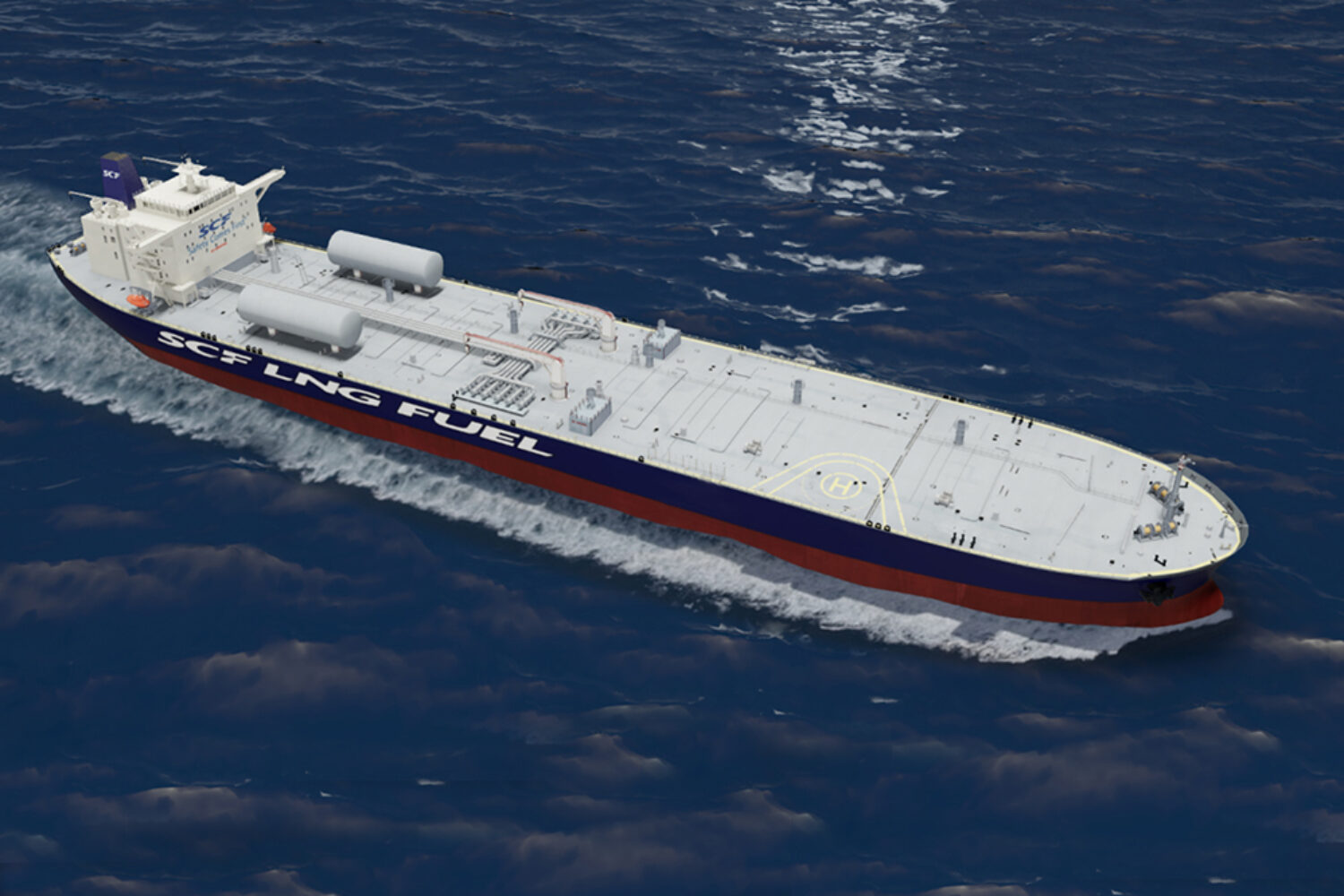Even if loopholes are repeatedly found, the sanctions are having an effect: Russia’s leading tanker group Sovcomflot only transported around 63 million tons of oil and liquefied natural gas (LNG) in 2024.
This compares to 75 million tons in the previous year. This corresponds to a decline of around 16%.
The Russian news agency Interfax based its report on transport volumes on information provided by CEO Igor Tonkovidov.
Sovcomflot is Russia’s largest tanker operator. The company transports crude oil, LNG and other oil products. Sovcomflot is also one of the most important international players in this sector. The shipping company contributes significantly to Russia’s income from energy exports, but is not the only transporter of Russian oil.
Sanctions are intended to stop the war machine
In 2024, the USA and the EU imposed sanctions against the Russian shipping company and its fleet, among others. The aim of the measures is to dry up Russia’s oil revenues. Money that could be used to finance the war in Ukraine. The company’s net profit fell by 55% last year to $424 million (€392 million).
Sovcomflot hopes to keep the transportation volume of crude oil, LNG and oil products at the same level in 2025, Tonkovidov said. However, dozens of tankers, including modern LNG vessels, were already placed on the US government’s OFAC sanctions list in 2024. The US added more of the shipping company’s vessels to its sanctions list in 2025 to further increase operational pressure.
Moscow describes the sanctions as an “economic war” and is specifically looking for new trading partners and logistics routes. The sanctions are part of a broader economic power struggle involving energy, supply chains and trade security.
Numerous oil companies and charterers from Europe and North America are avoiding Sovcomflot. Since the introduction of sanctions, China, India and some African countries have become the main buyers of Russian oil.
Circumventing sanctions – Russia’s oil finds new routes
In addition to Sovcomflot, other companies are involved in the transportation of Russian oil. The Indian shipping company Gatik Ship Management has come to the fore. The Mumbai-based company has greatly expanded its tanker fleet within a short space of time. The aim is to transport Russian oil to Asia. Gatik is increasingly replacing Western providers who have withdrawn from the business.
Greek shipping companies such as Dynacom Tankers, Delta Tankers and TMS Tankers also played a central role in exporting Russian oil for many years. Some of these companies withdrew after the start of the sanctions, while others continue to operate, albeit in a more targeted manner and with restrictions.
The so-called shadow fleet now plays a special role. It consists of older tankers with opaque ownership structures. The ships sail under different flags – often from Liberia, Panama or the Marshall Islands. Despite sanctions, these ships continue to transport Russian oil, primarily to China, India and increasingly also to Africa.
The Western sanctions have not put an end to the Russian oil trade, but have steered it in other directions. New transport structures have emerged that are difficult to monitor. In the long term, new maritime trade routes are likely to become a priority – for example via the Arctic, the Pacific or new pipelines to China and India. (rup)













